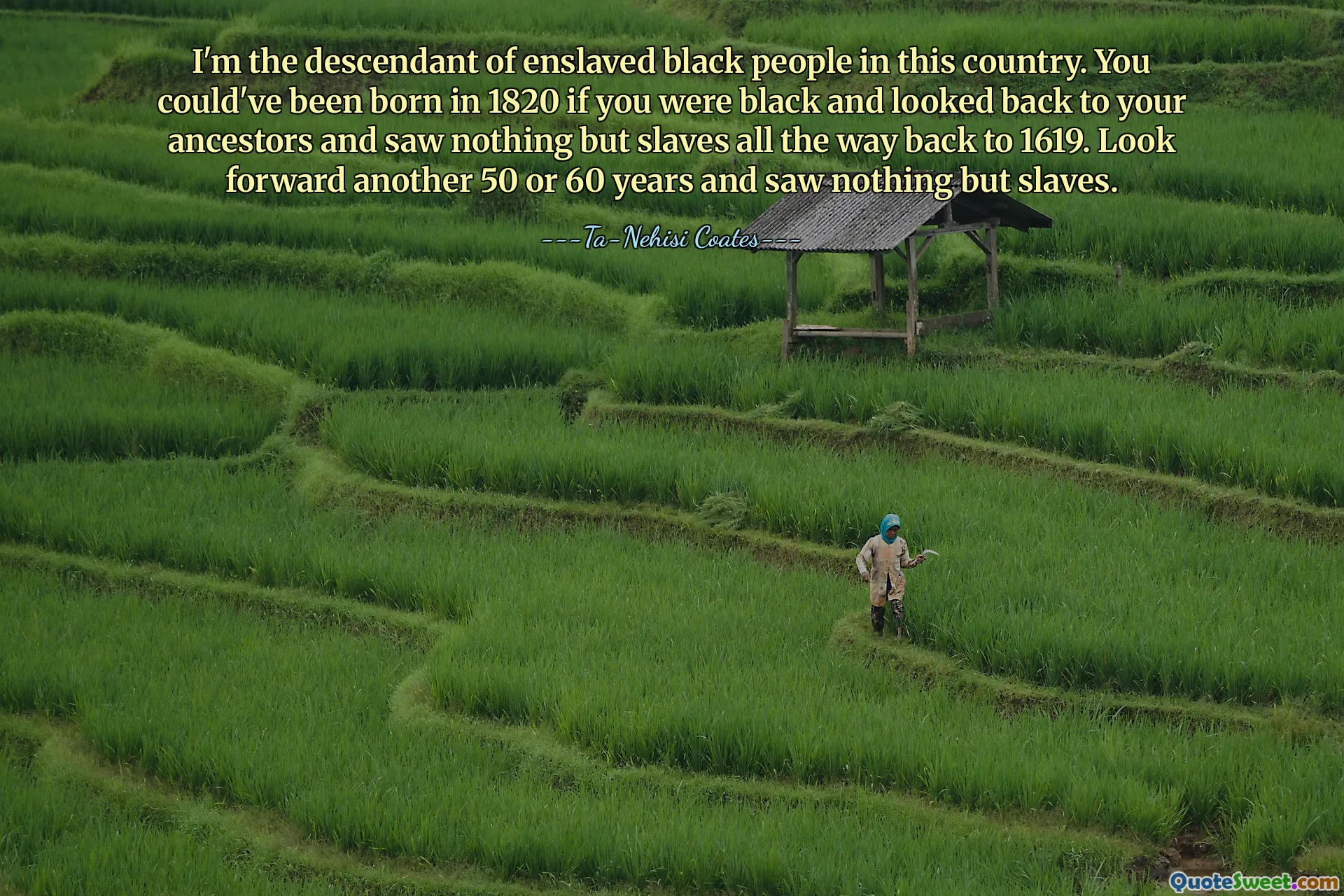
I'm the descendant of enslaved black people in this country. You could've been born in 1820 if you were black and looked back to your ancestors and saw nothing but slaves all the way back to 1619. Look forward another 50 or 60 years and saw nothing but slaves.
This quote powerfully underscores the profound and unbroken legacy of bondage experienced by African Americans. It prompts us to reflect on the weight of history carried through generations, emphasizing that the histories of many Black Americans are intricately tied to slavery, a brutal chapter that shapes identities and consciousness even today. The assertion that one could trace their ancestors back to 1619, the year when the first enslaved Africans were forcibly brought to what would become the United States, highlights the deep roots of systemic oppression embedded in the nation's fabric. Understanding this historical continuity is crucial to grasping the enduring social, economic, and cultural ramifications faced by Black communities. It challenges the misconception that slavery is solely a distant past or a chapter closed long ago, illustrating instead that its legacy persists in generational trauma, disparities, and ongoing struggles for justice and equality. Recognizing this lineage demands a communal acknowledgment of trauma but also a deeper empathy for the ongoing fight for civil rights rooted in a historical context. The quote also invites introspection about identity — understanding oneself not just as an individual but as part of a long continuum shaped by resilience against adversity. Such reflection can foster greater awareness of systemic inequities and inspire collective efforts towards healing and justice, acknowledging that the scars of the past continue to influence the present.











